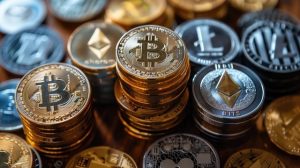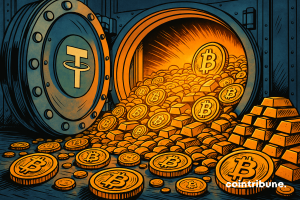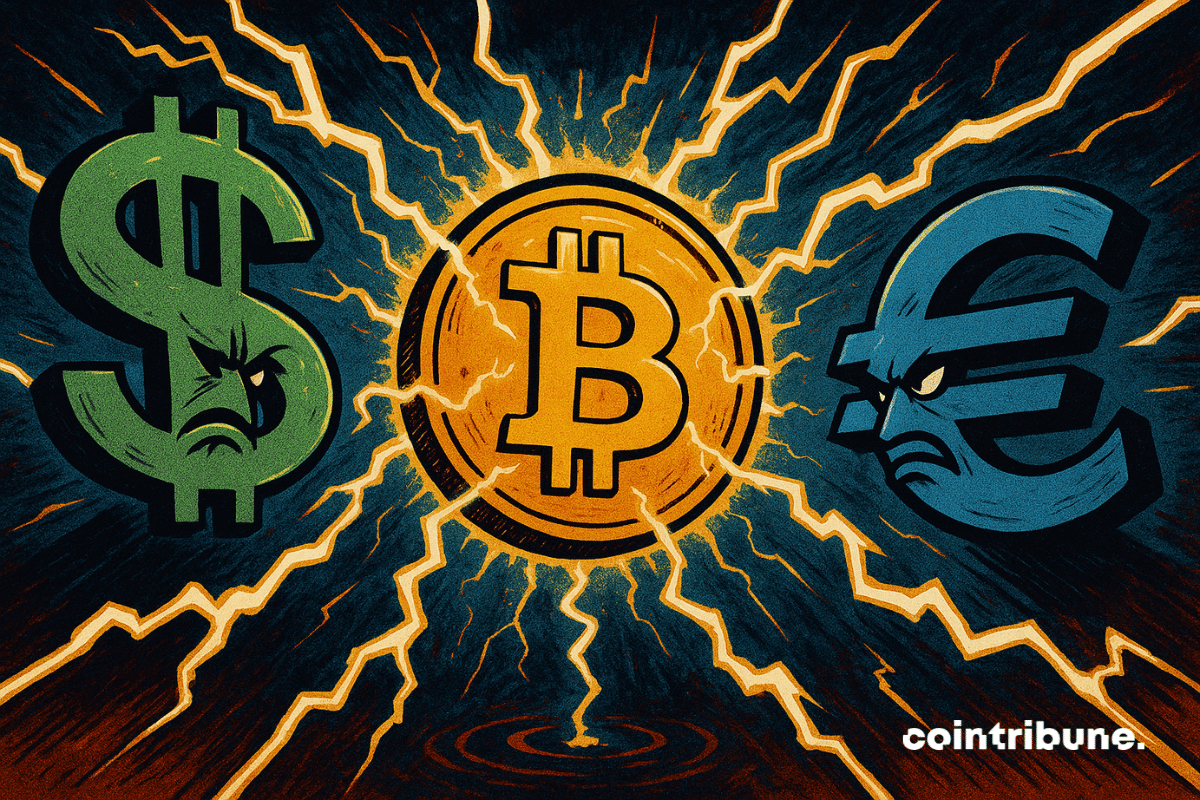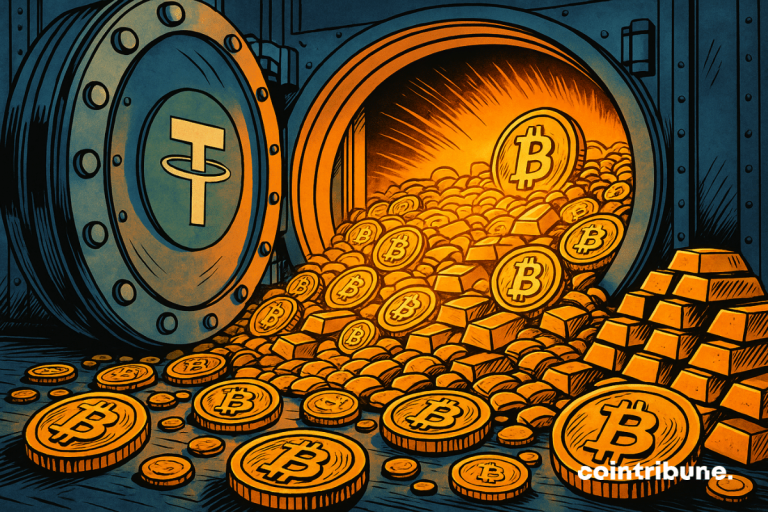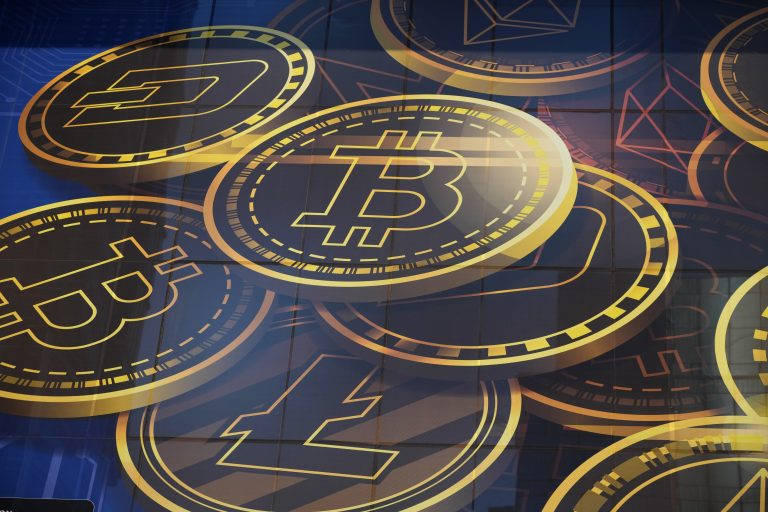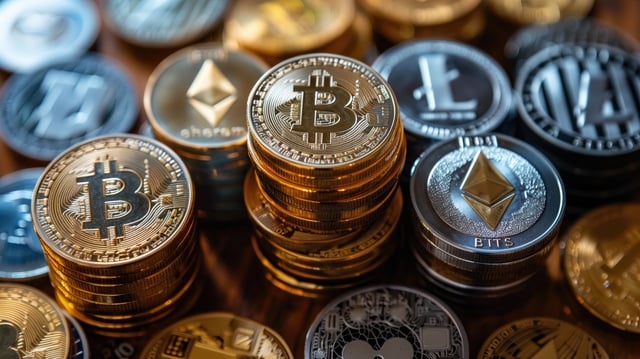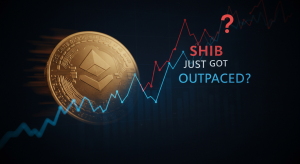16h05 ▪
6
min read ▪ by
Christine Lagarde dreams of a digital euro supplanting the dollar in global foreign exchange reserves. The United States, meanwhile, is betting on bitcoin.
In Brief
- Christine Lagarde calls for strengthening the euro as an international reserve currency to rival the dollar.
- The dollar’s hegemony could have fallen several times in the 20th century but survived each time due to a lack of credible alternatives.
- Facing the deadlock of a federal euro and the structural decline of the dollar, bitcoin emerges as a stateless store of value.
Berlin Calling
It is official, Europe has joined the BRICS’ revolt against the dollar. Christine Lagarde defied Donald Trump from Berlin, calling on the whole world to place its reserves in European debt.
The euro is currently the second international reserve currency. It represents “20% of foreign exchange reserves, compared to 58% for the dollar,” she stated. Increasing the share of the euro “would allow European governments and companies to borrow at lower cost,” according to IMF data.
In short, this would allow Europe to better control its own destiny — giving us a bit of what Valéry Giscard d’Estaing called the “exorbitant privilege” 60 years ago.
Christine Lagarde
This would not be the first time a dominant currency gives way. The dollar dethroned the British pound in the mid-1920s to reach 64% of global foreign exchange reserves by 1931.
The ECB president highlighted that the dollar’s hegemony could have collapsed twice already. In 1933, when President Roosevelt suspended the dollar’s convertibility into gold, and again in 1971, under Nixon.
In both cases, the position of the dollar as the international reserve currency sharply declined. It fell from 60% to 20% of global foreign exchange reserves in the 1930s, and from 70% to 50% in the 1970s.
But each time, the greenback managed to pull through.
Why?
Because there was no alternative currency able to take over. There was only gold, whose share in foreign reserves soared abruptly. It rose to 97% of foreign exchange reserves in the 1930s, and 60% in the 1970s.
But the dollar returned strongly thanks to World War II before definitively establishing its hegemony at the end of the 1970s thanks to the petrodollar.
Gold could never establish itself in the long term because it is a poor payment system. The emergence of the SWIFT network was another decisive advantage for the dollar at the dawn of globalization.
For Christine Lagarde, the big difference compared to previous eras is that today an alternative exists: the euro. In practice, central banks prefer to accumulate gold.
Gold purchases are at an all-time high since the beginning of the war in Ukraine. Gold represents 20% of global foreign exchange reserves, notably thanks to the Sino-Russian tango that no longer wants to finance American debt.
Let us also recall that the European Central Bank froze nearly 300 billion euros belonging to Russia… Who can believe that the BRICS will fall from the frying pan into the fire by trading their dollars for the single currency?
Christine Lagarde seems to believe it. She proposes, for this purpose, to strengthen European military power and to unify the debt market. Central banks place their reserves in the debts of countries “that can honor their alliances through their military power”
Bitcoin, the reserve currency of the 21st century
Despite decades of efforts to converge economically, the dream of a European debt market remains elusive. Efficient countries like Germany and the Netherlands oppose debt mutualization.
It is a matter of national sovereignty. Germany’s debt-to-GDP ratio is 63%, compared to over 140% in Italy… Why would Germans agree to pay for others? It is possible to force Greece into austerity, but not France or Italy.
In this context, it is hard to see how the euro could outpace the dollar. Moreover, is it really desirable?
After decades of exorbitant privilege, the United States shows an annual trade deficit of over one trillion dollars combined with deindustrialization. There is no miracle; everything is paid for sooner or later.
Should we not rather give up this double-edged privilege? Would it not be wiser for the world to trade in a stateless currency, like bitcoin? BTC now weighs 2.2 trillion dollars, as much as the global reserves denominated in euros…
Bitcoin has the great advantage – unlike gold – of being both a currency and a payment network. A network that is moreover uncensorable, unlike the SWIFT network. Bitcoin is also a much better store of value.
The United States has understood this well and intends to recover by selling gold to accumulate bitcoins. Meanwhile, Christine Lagarde dreams of launching a digital euro. Yet another big fiasco in sight…
It is time for the old continent to wake up. Let’s at least encourage energy companies like EDF to mine bitcoins instead of selling off our electricity while damaging our nuclear plants.
Our article on the subject: No blackout with Bitcoin miners!
Maximize your Cointribune experience with our “Read to Earn” program! For every article you read, earn points and access exclusive rewards. Sign up now and start earning benefits.
Bitcoin, geopolitical, economic and energy journalist.
DISCLAIMER
The views, thoughts, and opinions expressed in this article belong solely to the author, and should not be taken as investment advice. Do your own research before taking any investment decisions.


